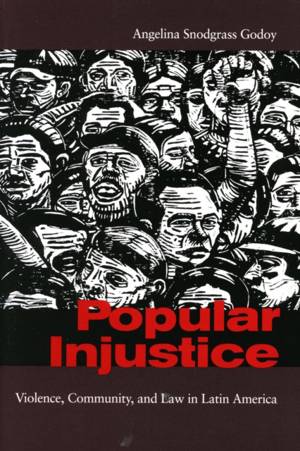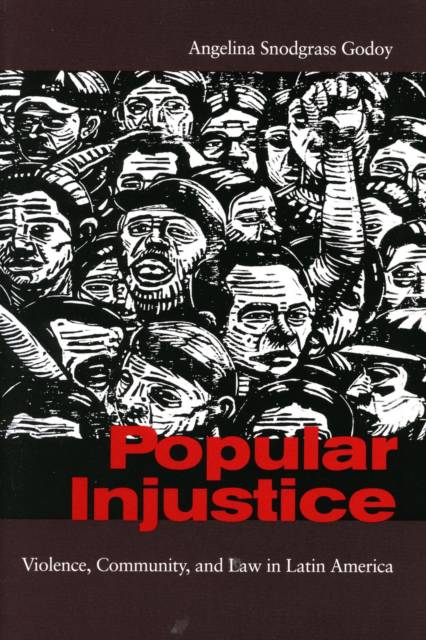
- Retrait gratuit dans votre magasin Club
- 7.000.000 titres dans notre catalogue
- Payer en toute sécurité
- Toujours un magasin près de chez vous
- Retrait gratuit dans votre magasin Club
- 7.000.000 titres dans notre catalogue
- Payer en toute sécurité
- Toujours un magasin près de chez vous
Popular Injustice
Violence, Community, and Law in Latin America
Angelina Snodgrass GodoyDescription
Popular Injustice focuses on the spread of highly punitive forms of social control (known locally as mano dura) in contemporary Latin America. Many people have not only called for harsher punishments, such as longer prison sentences and the reintroduction of capital punishment, but also support vigilante practices like lynchings. In Guatemala, hundreds of these mob killings have occurred since the end of the country's armed conflict in 1996. Drawing on dozens of interviews with residents of lynching communities, Godoy argues that while these acts of violence do reveal widespread frustration with the criminal justice system, they are more than simply knee-jerk responses to crime. They demonstrate how community ties have been reshaped by decades of state violence and by the social and economic changes associated with globalization.
Spécifications
Parties prenantes
- Auteur(s) :
- Editeur:
Contenu
- Nombre de pages :
- 256
- Langue:
- Anglais
Caractéristiques
- EAN:
- 9780804753838
- Date de parution :
- 14-03-06
- Format:
- Livre broché
- Format numérique:
- Trade paperback (VS)
- Dimensions :
- 155 mm x 228 mm
- Poids :
- 340 g







